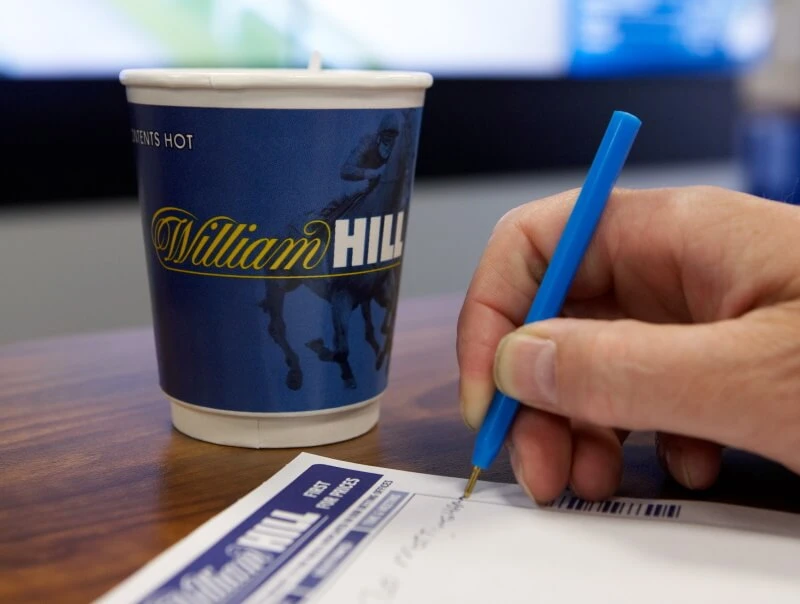William Hill hails digital growth as profits and revenue slump

In its final results for 2020, the gambling group – which is in the process of being acquired by Caesars Entertainment in a £2.9bn deal – said revenue fell 16% to £1.32bn amid the disruption of live sporting events, closures and restrictions to retail and casinos.
Online accounted for 61% of group revenue, up considerably on the 47% in the previous year.
Online net revenue totalled £802.8m in 2020, up 9% on 2019. Within that segment, UK net revenue was up 5% to a record £503.2m with international revenue up 16% to £299.6m thanks to the full integration of Mr Green and expansion in Europe and Latin America.
Online sportsbook revenue was up 4% to £320.6m with gaming net revenue up 12% to £482.2m.
William Hill US net revenue grew by 32% to £167.3m and now accounts for 13% of group revenue compared to 8% a year ago. It said new partnerships, entry in five new states and the launch of online casino assisted its success.
Ulrik Bengtsson, William Hill’s chief executive, said: “We are delighted with our International Online performance, where our investment in our product and technology is producing clear benefits, particularly in light of the regulatory headwinds in Germany and temporary restrictions elsewhere.
“We will continue to benefit from our agile marketing engine, and the recent agreement to acquire Alfabet S.A.S. in Colombia and our licence in Argentina both offer further promising growth opportunities in Latin America.
“The US traded well into the year-end, concluding the year with 19% market share and delivering a profitable return. Our partnerships have ensured that brand awareness has risen, our product offering has expanded, and our end-to-end proprietary tech is facilitating rapid new state openings.”
Retail was hit hardest by the impact of the pandemic with net revenue down 51% to £354.2m. Sportsbook fell 47% to £212.7m, while gaming was down 55% to £141.5m. As well as widespread lockdown closures, William Hill said it was also negatively impacted by the £2 stake limit on B2 gaming machines its shop closure programme. However, it noted its shops “traded well and profitably when open”.
The business paid £325.5m in costs of sales for a gross profit of £998.8m.
William Hill reported an adjusted operating profit – excluding exceptional items and discontinued operations – of £57.3m, which was down 61% year-on-year as other operating expenses declined more slowly than revenue.
It experienced a 91% fall in adjusted pre-tax profits to £9.1m, compared to £96.5m in 2019.
In statutory terms, William Hill returned to a pre-tax profit of £51.0m following a £37.6m loss in 2019 following its acquisition of Mr Green and US investment. This was in the main due to £208.3m from the VAT refund claim for charges incurred on retail gaming machines income between 2002 and 2013, which offset a non-cash intangible impairment of the retail division of £125.7m and £70.4m costs associated with the acquisition by Caesars.
Breaking down costs and profits by segment, cost of sales increased 14%, primarily reflecting the increase in UK remote gaming duty, which was implemented in April 2019, and the mix shift towards gaming. Online operating costs increased 8%, mainly reflecting an increase in the targeted marketing budget for International, resulting in an adjusted operating profit of £121.9m, an increase of 3%.
In retail, William Hill said disciplined cost management meant it was able to reduce operating expenses by 35% while the cost of sales fell 53%, in line with net revenue. However, because retail operating cost base is primarily fixed, the segment generated an adjusted operating loss of £29.5m.
In the US, cost of sales increased in line with net revenue growth, rising 44%. The group expanded its team through a mix of new hires and onboarding Caesars and Cantor teams, but disciplined cost management meant expenses increased just 21%, leading to an adjusted operating profit of £12.4m.
William Hill said it acted to strengthen the balance sheet throughout the year by actions to raise capital and preserve liquidity, most notably by cancelling final dividends and employee bonuses, waiving covenants, the VAT recoup and raising £218.6m through an equity placing.
A reduction in costs and improved marketing efficiencies generated annualised savings of £16.5m. It said in the UK it refocused its marketing strategy on yield, reducing spend by 2% overall.
William Hill noted that it topped up all UK employees’ wages to 100% while on furlough and repaid furlough monies of £24.5m in the second half due to the performance of online and retail through the course of the year.
Looking ahead, William Hill said Caesars’ current expectation is that the remaining approvals required to be obtained from the relevant US gaming authorities will be received in time to allow completion of the acquisition to occur early in the second quarter of 2021 and possibly as early as March 2021.
The group added: “We acknowledge that a number of headwinds will persist in 2021. We anticipate the Covid-19 pandemic will continue to impact the economic health of the UK high street and affect the ability of US casinos and our retail shops to fully open.
“We are also alert to the ever-changing regulatory landscape, in the UK and overseas, and will continue to monitor developments closely and act responsibly. As we deliver on our ambitions to accelerate growth and diversify internationally, we recognise the responsibility we have to ensure the products and services we offer, allow our customers to play safely.
“The gambling review was launched by the UK Government in December 2020 and we look forward to engaging with the UK Government to encourage an evidence-led regulatory framework.
“We are committed to working with all stakeholders to create partnerships, solutions and policies that will create a long-term, sustainable betting and gaming ecosystem that keeps players safe.”
